Assessments & Evaluations
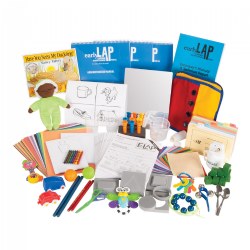
Early Learning Accomplishment Profile - E-LAP™ - Kit
Item: 13649
Status: In Stock
$379.95
Birth - 36 months. A criterion-referenced instrument measuring development in 6 domains. E-LAP™ is appropriate for all children, including those with disabilities. The instrument is excellent for Early Head Start Programs and effective for communicating and collaborating with parents about their children's progress. Includes scoring sheets appropriate for summarizing results 3 times each year. Kit includes materials necessary for assessing 20 children. Additional manuals and scoring books available. Contents may vary.
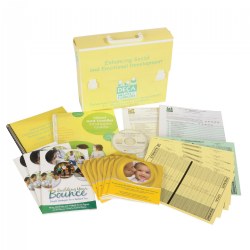
DECA Early Childhood Assessment for Infants/Toddlers - DECA-I/T - Kit
Item: 16139
Status: In Stock
$229.95
The Devereux Early Childhood Assessment for Infants and Toddlers is a premier tool for assessing protective factors and screening for potential risks in the social and emotional development of very young children. It includes 50 record forms (20 Infant and 30 Toddler), Strategies Guide, User Guide, Set of 5 reproducible Parent Teacher Masters, 20 Parent Strategy Guides (For Now & Forever), 3 Adult Resilience Journals (Building Your Bounce) and Forms CD. This assessment is standardized, norm-referenced,… More »

DECA-I/T Infant Record Forms
Item: 13844P
Status: In Stock
$19.95
For use with DECA-IT kit for children ages 1 month up to 18 months. Available in English or Spanish. Set of 20.
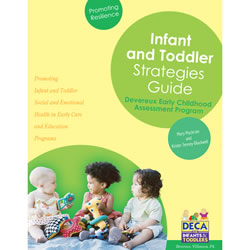
DECA-I/T Strategies Guide
Item: 16138
Status: In Stock
$49.95
This guide provides research-based, simple, easy-to-use social and emotional strategies for the home and childcare setting. With hundreds of strategies, organized into five chapters, this guide is a wonderful reference for any caregiver who is interested in promoting the social and emotional health of infants and toddlers.
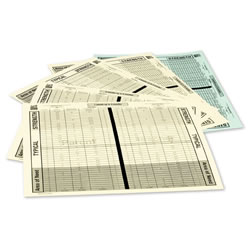
DECA-I/T Parent/Teacher Profile Masters - Set of 5
Item: 14016
Status: In Stock
$12.95
For use with DECA-IT kit. Includes 4 infant and 1 toddler parent/teacher profile masters.

DECA-P2 Record Forms
Item: 29025P
Status: In Stock
$39.95
The DECA-P2 Record Forms are strength-based, nationally standardized, reliable, valid, and easy-to-use! These sets includes 40 assessment forms and a pad of 40 individual child profile forms. Sets available in English or Spanish.

Promoting Resilience For Now and Forever - Preschool, 2nd Edition - Set of 20
Item: 26173P
Status: In Stock
$32.95
These guides offer families simple strategies to support young children's healthy social and emotional development. Filled with suggestions of everyday activities that families can enjoy together and promote three key protective factors: initiative, self-regulation, and attachment/relationships. Booklets (40 pages) are available in English or Spanish in sets of 20. Copyright 2013.
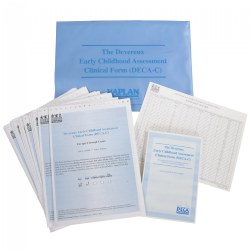
Devereux Early Childhood Assessment Clinical - DECA-C - Kit
Item: 98817
Status: In Stock
$149.95
The Devereux Early Childhood Assessment Clinical Form (DECA-C) is designed to be used by early childhood mental health consultants and other mental health professionals with select children, ages 2 through 5, who are already showing significant behavioral concerns. The DECA-C is a 62-item scale that can be completed by either teachers or parents in about 15 minutes. The DECA-C contains all of the strength-based resilience items and scales found on the Devereux Early Childhood Assessment for Preschoolers,… More »
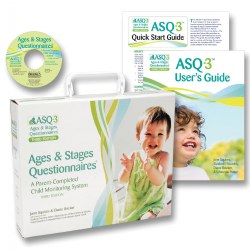
ASQ-3® Starter Kit
Item: 15485P
Status: In Stock
$295.00
Everything you need to start screening children with ASQ-3®. This Starter Kit is part of ASQ-3®, the bestselling screener trusted for more than 20 years to pinpoint delays as early as possible during the crucial first 5 years of life. ASQ-3® questionnaires are reliable and valid, parent-completed, cost effective, recommended by top organizations, and easy to administer and score. The 21 age-appropriate questionnaires effectively screen five key developmental areas: communication, gross… More »

ASQ-3® Questionnaire
Item: 15481P
Status: In Stock
$240.00
Now enhanced and updated based on extensive user feedback and a NEW unparalleled research sample of more than 12,000 children, ASQ-3® is the most accurate, cost-effective, and parent-friendly way to identify children from one month to 5 1/2 years with developmental delays.

ASQ-3® Users Guide
Item: 15483
Status: In Stock
$55.00
Absolutely essential to using ASQ-3®, this revised and redesigned guide provides step-by-step guidance on administering and scoring the questionnaires, setting up a screening system, working with families effectively, and using ASQ-3® across a wide range of settings.

ASQ-3® Scoring DVD
Item: 15487
Status: Ships From Manufacturer
$49.95
Through footage of ASQ-3® tasks and close-ups of sample questions and scores, learn how to score the questionnaires accurately and decide if a referral for further assessment is needed.

CLASS® 2nd Edition Infant-Toddler Manual Set
Item: 302741P
Status: In Stock
$100.00
CLASS® 2nd Edition Infant-Toddler Manual Set includes key enhancements that make it easier to understand, access, and observe effective interactions in infant and toddler learning settings. Available in English or Spanish.

CLASS® 2nd Edition Infant - 3rd Reference Manual
Item: 302631P
Status: In Stock
$45.00
The CLASS® 2nd Edition Infant-Third Reference Manual contains the research behind the CLASS tool, and provides additional insight and guidance on using CLASS within a CQI process and system. Available in English and Spanish

CLASS® 2nd Edition Infant-Toddler Observer Field Guide
Item: 302635P
Status: In Stock
$75.00
The CLASS® 2nd Edition Infant-Toddler Observation Field Guide provides detailed descriptions of each dimension to guide observations and understanding of effective interactions across infant and toddler settings. Available in English or Spanish

CLASS® 2nd Edition Infant-Toddler Interactions Dimensions Guide
Item: 302633P
Status: In Stock
$35.00
Keep interactions top of mind with this handy guide that builds understanding of the CLASS framework. The CLASS® Infant-Toddler Interactions Dimensions Guide is designed for ease of use, offering concise explanations of CLASS domains and dimensions, along with descriptions of effective interactions and practical strategies. This guide is ideal for educators, coaches, and anyone looking to understand the importance of interactions. Available in English or Spanish.

CLASS® 2nd Edition Infant-Toddler Score Sheets
Item: 302637P
Status: In Stock
$30.00
CLASS® 2nd Edition Infant-Toddler Observation Score Sheets must be used by those conducting CLASS observations in infant and toddler settings. Each booklet contains six observation sheets and one scoring summary sheet for recording notes and scores. Available in packs of 5 booklets, totaling 30 observation sheets. Available in English or Spanish.

TPITOS™ (Teaching Pyramid Infant-Toddler Observation Scale) Manual and Forms
Item: 302661P
Status: Ships From Manufacturer
$35.00 - $55.00
Give your child-care program a strong social-emotional foundation with the Complete TPITOS™ (Teaching Pyramid Infant-Toddler Observation Scale). This scale helps caregivers of children from birth to 3 years old evaluate the social-emotional quality of their programs by measuring how well they cultivate nurturing relationships and bolster solid social-emotional development. Caregivers and centers that use this scale will empower themselves to provide the best possible care because they will… More »

CLASS® 2nd Edition Pre-K - 3rd with Environments™
Item: 302172P
Status: In Stock
$30.00
Each booklet contains six observation sheets and one scoring summary sheet for recording notes and scores. Available in packs of 5 booklets, for a total of 30 observation sheets. English and Spanish version available.
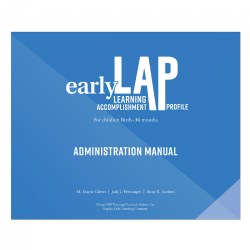
E-LAP™ Administration Manual - 3rd Edition
Item: 8203
Status: In Stock
$17.95
Includes a list of materials, instruction for administering individual items, a summary page, an IFSP form, and a profile page. © 2001
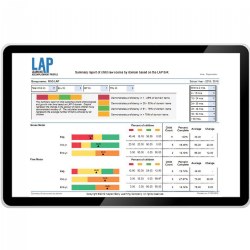
Online LAP™ Assessment Software
Item: 24526P
Status: Ships From Manufacturer
$0.50 - $16.95
Based on the Learning Accomplishment Profile assessment system, LAP™ Software is a web-based software product designed to help collect and document child progress, produce child and aggregate reports, provide information for individualized instruction, and meet accountability requirements. The diagnostic assessment works with LAP™-D™, 3rd edition, a norm-referenced assessment tool for observing the development of children in the 30 to 72 month age range. The ongoing assessment… More »

Infant Toddler CLASS® Social-Emotional Bilingual Kit
Item: 301836
Status: In Stock
$430.00
Foster the development of self-regulation skills in infants and toddlers with the help of this bilingual, research-based kit. Designed to support emotional and behavioral growth during the earliest stages of life, the kit includes practical tools and strategies that help children learn to manage their feelings, behaviors, and responses. Through interactive, play-based activities presented in both English and Spanish, ceducators can create nurturing routines that encourage focus, patience, and emotional… More »

CLASS® Environment Score Sheets - Infant - Toddler
Item: 301854
Status: In Stock
$20.00
CLASS Observers use score sheets specifically for the CLASS Environment™. Each booklet contains 8 observation sheets, and conveniently available in packs of 5 booklets, providing a total of 40 sheets. CLASS Environment™ is designed to complement CLASS® observations and is not intended for independent assessment. A single CLASS Environment score sheet should be used. Individual score sheets can be detached and insert into the CLASS Observation Score Sheets booklet.
